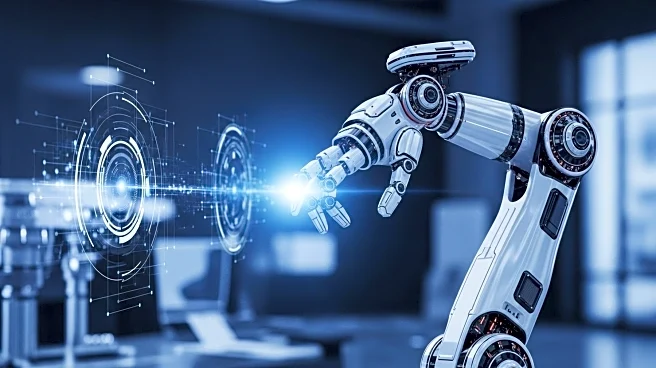What's Happening?
Anthropic has released Claude Sonnet 4.5, a new AI model designed to autonomously build software and perform business tasks. The model can operate independently for up to 30 hours, significantly outperforming its predecessor, Opus 4.1. Claude Sonnet 4.5 excels in coding and has achieved top scores on benchmarks like SWE-Bench Verified. It is particularly effective in financial services, outperforming earlier models in tasks such as financial modeling and forecasting. The model is positioned to enhance corporate and workplace productivity, with a focus on task automation and coding.
Why It's Important?
Claude Sonnet 4.5's ability to autonomously handle complex tasks could transform business operations by reducing the need for human intervention in routine and time-consuming processes. This could lead to increased efficiency and cost savings for companies, particularly in industries like finance and software development. The model's focus on task automation aligns with a growing trend towards using AI to streamline business operations, potentially reshaping how companies approach productivity and workforce management.
What's Next?
As businesses adopt Claude Sonnet 4.5, there may be a shift towards greater reliance on AI for complex and repetitive tasks. This could lead to changes in workforce dynamics, with a potential reduction in demand for certain roles and an increased emphasis on AI management and oversight skills. Additionally, the model's success could prompt further advancements in AI technology, as competitors strive to match or exceed its capabilities. The ongoing development of AI models like Claude Sonnet 4.5 will likely continue to influence business strategies and operational efficiencies.
Beyond the Headlines
The deployment of Claude Sonnet 4.5 raises important considerations about the ethical use of AI in business. As AI models become more autonomous, companies will need to address potential risks related to data privacy, security, and decision-making transparency. Ensuring that AI systems are aligned with ethical standards and regulatory requirements will be crucial as these technologies become more integrated into business operations.









